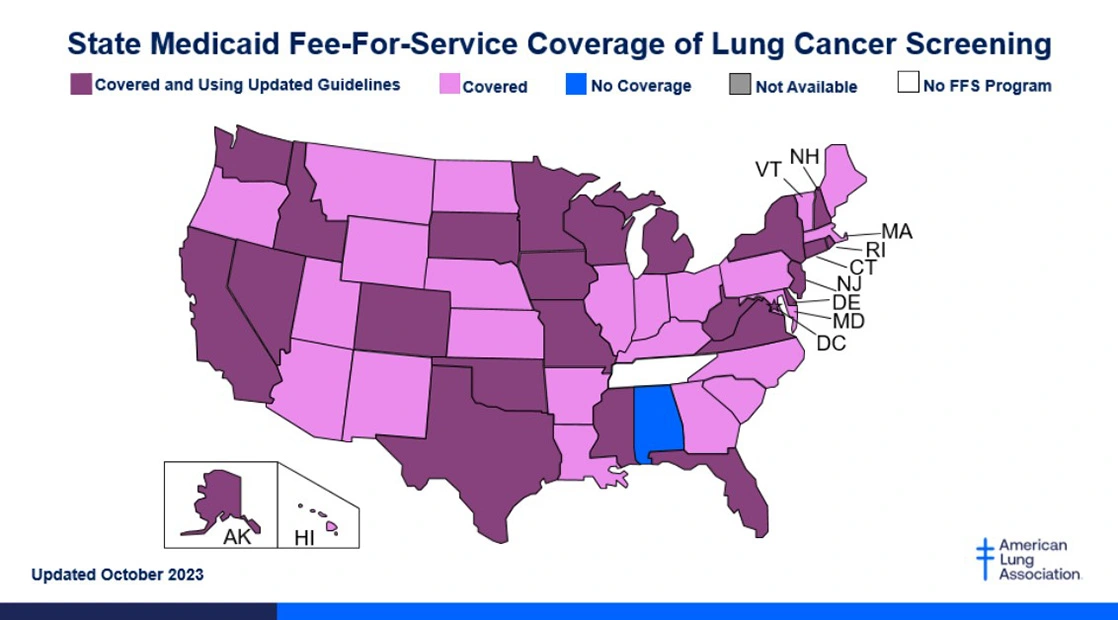Presented by The American Lung Association and The University of Texas MD Anderson Cancer Center.
Lung cancer is the nation's leading cancer deaths of both women and men in the United States, accounting for approximately 20% of cancer deaths. Detecting lung cancer in early stages versus late stage is often the difference between life and death. Low-dose computed tomography (LDCT) screening among those at high risk for lung cancer can help detect this disease earlier and has been shown to reduce the lung cancer death rate by up to 20%.
The American Lung Association and The University of Texas MD Anderson Cancer Center have partnered to improve coverage for LDCT screenings for individuals at high risk for lung cancer in state Medicaid programs. Below are a number of resources for public health and lung health organizations, state and local coalitions, and healthcare professionals to use in their work on this issue.
Lung Cancer Screening Coverage in State Medicaid Fee-for-Service Programs
Medicaid fee-for-service programs that cover lung cancer screening vary in eligibility criteria and barriers to screening, including prior authorization and cost sharing. Find out more about eligibility criteria, prior authorization and cost sharing for lung cancer screening in state Medicaid fee-for-service programs.



